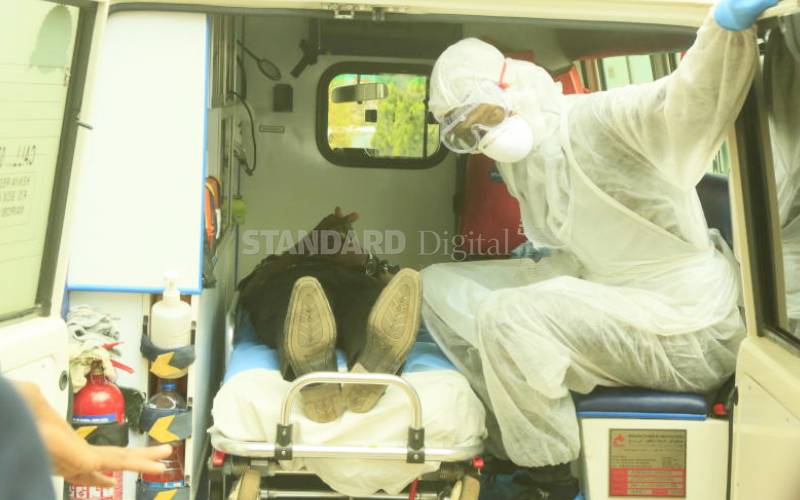×
The Standard e-Paper
Home To Bold Columnists

Red cross Volunteers team demonstrates how to evacuate corona-virus victim as part of preparedness to handle corona-virus patients . This was an exercise at Kakamega county headquarters on March 24, 2020. [Benjamin Sakwa]
Kenya has sought outside help in the fight against coronavirus pandemic, with the World Bank and IMF pledging Sh122 billion.